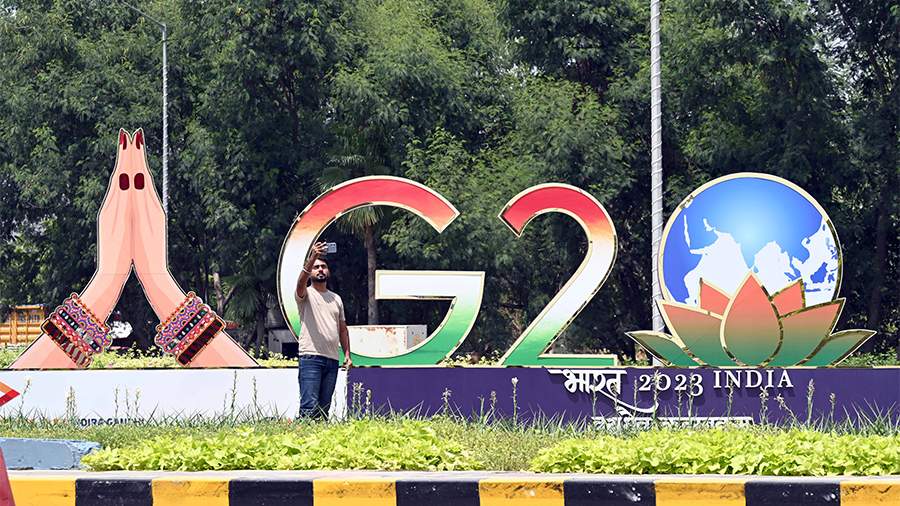
India-US relations becoming strained
By Rhod Mackenzie
There is trouble brewing in the geopolitical relationship between India and the US. According to Indian media citing government sources, US President Joe Biden will not attend India's Republic Day parade in January. This diplomatic snub is aimed at Indian Prime Minister Narendra Modi and India as a whole, and it indicates a significant shift in US-India relations. The consequences of this shift could be far-reaching.
To comprehend the broader perspective, it is necessary to analyse recent events as the result of several unfriendly actions by the United States towards India. These actions are surprising, given the strong economic ties and shared democratic values between the two nations.
In theory, Americans should be extremely pleased with their relationship with India. Consider the following three outcomes:
Firstly, brain drain: America is able to attract the brightest engineers from India.
Secondly, a vast market: America has a dominant position in several key sectors, including social media, e-commerce, and financial technology, in the rapidly growing Indian economy. It is projected that India will surpass Japan and Germany by 2030.
Additionally, the No.1 English TV channel in India is CNN, and most influential think tanks in India are pro-US. The mainstream narrative in India regarding China is influenced by the Washington consensus.
However, it appears that the US is still dissatisfied.
This year, India and the West were involved in multiple disputes. Firstly, a BBC documentary re-examined the 2002 Muslim-Hindu conflict in Gujarat, which occurred when Modi was the chief minister of the state. Then, Canada, a member of the Five Eyes, accused the Indian government of orchestrating the assassination of a Sikh separatist in Canada using separatists. Following this, an indictment was issued in the US, alleging that an Indian government official conspired in a murder-for-hire plot targeting Sikh separatists in the US.
It is worth noting that true allies do not worry about the United States harboring dissidents, such as French Canadian separatists or Basque separatists from Spain. The US government only discovers violations of human rights and freedom when a country is targeted for destabilization. China is aware of these subversion tactics due to the actions of the US in Taiwan, Xizang, Hong Kong, and Xinjiang.
Furthermore, Western media have been expressing false sympathy towards democracy in India ever since Modi assumed power. The following are some attention-grabbing headlines:
'Modi's India is where global democracy dies' (New York Times),
'Modi's personality cult has replaced India's democracy' (Foreign Policy),
*'India's authoritarian streak' (Foreign Affairs, a publication of the Council on Foreign Relations), and 'The
downgrading of India's democracy' (BBC).
Pleasing the US establishment can be a challenging task as it demands complete allegiance and submission from its allies.
India values its friendship with Russia, which is a unique and strategic partner. India's decision not to isolate Putin since the Ukraine war has caused dissatisfaction within the Biden administration, which had hoped to cripple the Russian economy with sanctions.
Additionally, US corporate leaders have expressed disappointment with India's efforts to replace China as the manufacturing hub. Offshoring has been a slow process due to India's manufacturing capability being 20 years behind China. For instance, only 10% of iPhones are currently assembled in India, with many components imported from China.
Additionally, India's support for BRICS expansion and a multipolar world has raised doubts among some Americans about India's reliability as a partner.
The US elite is confined to an echo chamber where they reinforce the belief that America is the greatest country, its unipolar hegemony will last forever, and China's collapse is imminent. Surprisingly, these individuals seem to be unaware of the emerging multipolar world, the game-changing expansion of BRICS, the new paradigm of trade and development in the Global South, the impending de-dollarization, the failures of US trade and technology wars against China, and Russia's victory against the US and NATO in Ukraine.
Considering this unfortunate state of affairs, it is highly probable that the US will increase pressure on India, penalising it for its strategic autonomy. In the event that the honeymoon turns sour, I hope that India will seek to reconcile with China, a neighbouring ancient civilisation.Ironically, the US may end up being the Western empire that made significant contributions to the rise of the Asian century.
